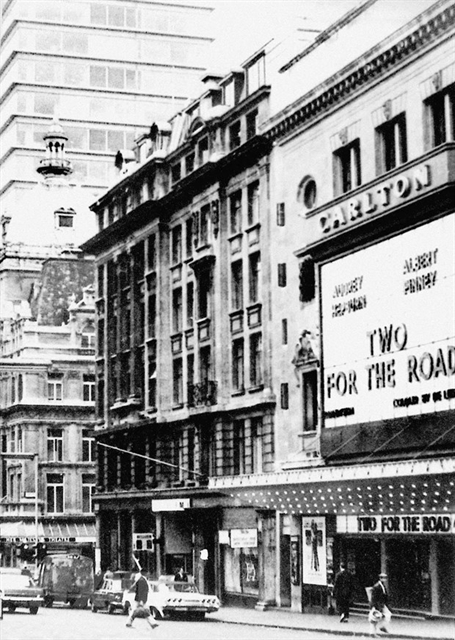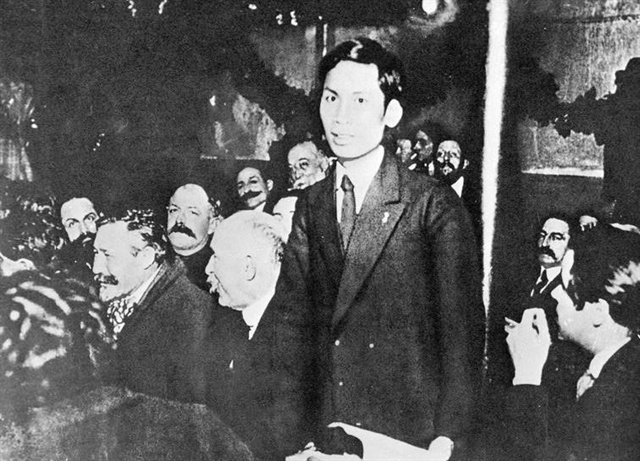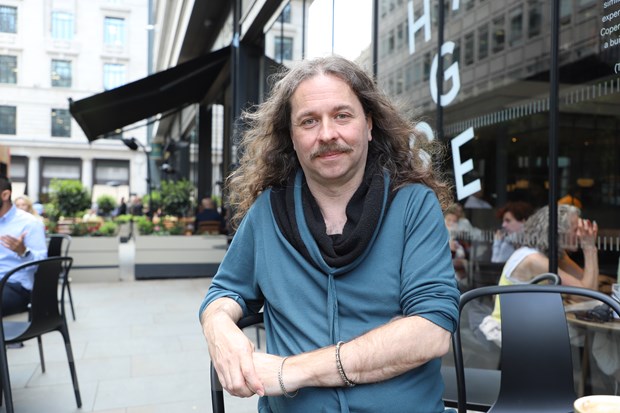 Politics & Law
Politics & Law

 |
| The Carlton Hotel in London, where the then young patriot Nguyễn Tất Thành washed dishes, and later became a skilled worker under great pastry chefs. The building is now the New Zealand House. — VNA/VNS File Photo |
LONDON — President Hồ Chí Minh’s stay in London was the very outset of his revolutionary journey and career and had a profound effect on him, especially the development of his own thinking, British historian John Callow told the Vietnam News Agency’s correspondents in the United Kingdom on the occasion of the late leader's 133rd birth anniversary (May 19, 1890-2023).
According to the historian, as part of his great journey, in May 1914, President Hồ Chí Minh, the late founder of modern Việt Nam, who at that time was using the name his father gave him – Nguyễn Tất Thành, came to London, which was considered the power centre of imperialism, the financial centre of capitalism and the capital of a system that stretched to India through Africa. The UK, at that time, was still the workshop of the world, with enormous fleets and armies.
President Hồ Chí Minh wanted to learn about secrets of imperialism and to have a sense of the developed industrial world. There had been uprisings in Việt Nam against imperialists, colonists and capitalism, but these had all failed. President Hồ Chí Minh wanted to understand the reasons behind those failures and find out different patterns of development for Vietnamese people as a nation.
He arrived in London at time of great industrial unrest with a lot of strikes and the Irish people’s uprising in 1916 to fight for their own independence. According to Callow, this was a crucial period that affected President Hồ Chí Minh enormously.
When in London, the President first took a job shovelling snow in a school playground in the cold. He then moved to Drayton Court Hotel on the railway line before working at the Carlton Hotel, where the President washed dishes, and later became a skilled worker under the wings of great pastry chefs. Here he saw the gulf that separated the rich from the poor.
He was shocked at the waste thrown away by the rich who ate here, whole chickens or whole sides of steak. He collected these and every night gave the food to the poor who waited at the back of the building for something to eat. While here, President Hồ Chí Minh joined an organised labour association that brought together Chinese, Lao and Vietnamese workers.
The British historian said much of what we know about President Hồ Chí Minh in this period came from the postcards he sent to his friends and comrades in Paris, three of which were intercepted.
The French police records also showed reports of a Vietnamese worker in London joining the movement of trade unionists. According to Callow, President Hồ Chí Minh probably lived in a small flat at the back of Tottenham Court Road as the French police intercepted some of his writings and had the English police raid the address. But he was long gone by then.
 |
| Nguyễn Tất Thành at the 18th National Congress of the French Section of the Workers' International, which took place in Tours City, on 25–30 December 1920. During the Congress, the majority voted to join the Third International and create the French Section of the Communist International, which became the French Communist Party in 1921. — VNA/VNS File Photo |
At that time, the British labour movement was very well developed with a lot of socialist writings. President Hồ Chí Minh read a lot of socialist journals, so it was probably the first time he encountered the work of the German philosopher Karl Marx in London.
Callow pointed out that President Hồ Chí Minh was walking in the footsteps of the father of modern socialism.
What he got from Marx would be an explanation for all the things he saw in this period, the historian said, adding that this was the bedrock of the President’s political economy and thinking.
President Hồ Chí Minh left Britain just after the 1917 revolution in Russia and was also incredibly influenced by Lenin's work on the colonial peoples.
Callow said the brilliance of President Hồ Chí Minh was looking at the founders of scientific socialism, of Karl Marx and Friedrich Engels, but then updating what they were saying and combining it with the new thoughts of Vladimir Lenin that spoke directly to the peasant workers and people of the world and had a direct impact on a country like Việt Nam which was colonised and brutalised under the thumb of the great trading companies.
The historian said the greatness of Hồ Chí Minh was his ability not to follow ideas for their own sake, but to take ideas, create and develop them, and never lose sight of the need for the national liberation of the Vietnamese people to make their lives better, healthier, happier and more decent.
Speaking of President Hồ Chí Minh’s thoughts, Callow said its greatness was adaptability and its refusal to turn Marxism into a dogma, into something to be worshipped, to be nodded at, but to make it applicable in Việt Nam while never losing sight of the revolutionary conditions.
The President thought day and night about achieving his goal of revolution, and to have a revolution that would be really worthwhile to sweep away the empires that dominated the fates and the life chances of the Vietnamese people and to put something better and brighter in their place.
Callow noted that President Hồ Chí Minh took the best traditions of Vietnamese culture, of it's amazing ancient society that existed long before the City of London, but put it within new times.
His thoughts gave the Communist Party of Việt Nam the adaptability that led them to đổi mới (Reform), thorough socio-economic reforms carried out since 1986 in the country.
 |
| British historian John Callow. — VNA/VNS Photo |
Speaking of personal qualities of President Hồ Chí Minh that made him an outstanding leader, Callow said alongside his enormous political qualities for organisation and inspirational leadership, there was also the essential simplicity of the President.
“He had an amazing intellect but he had never lost his contact with the people, whether it was the people of London or small farmers of Việt Nam that he spoke to directly," the historian said.
"He never lost sight of the people themselves and did not let power go to his head. He did not set himself apart from the people. He understood the people and was a part of the people, but was a leader of the world in the true sense.
“He was humble, quiet and unassuming, and brave and had enormous dignity at the same time. His poetic Prison Diary gave a sense of the man himself. His humanity, his calmness under great stress, his creativity that he used in jail turned out a work of art, a work of poetry and a work to fire the imagination of his comrades in the underground movement.”
The historian concluded that President Hồ Chí Minh was a great world figure who could combine intellect with passion, with decency and with the sense of a man who was absolutely incorruptible and put the people of his own nation before everything else in his life. And his work, whether it is art or politics, was always there first and foremost at the service of the people. — VNS




